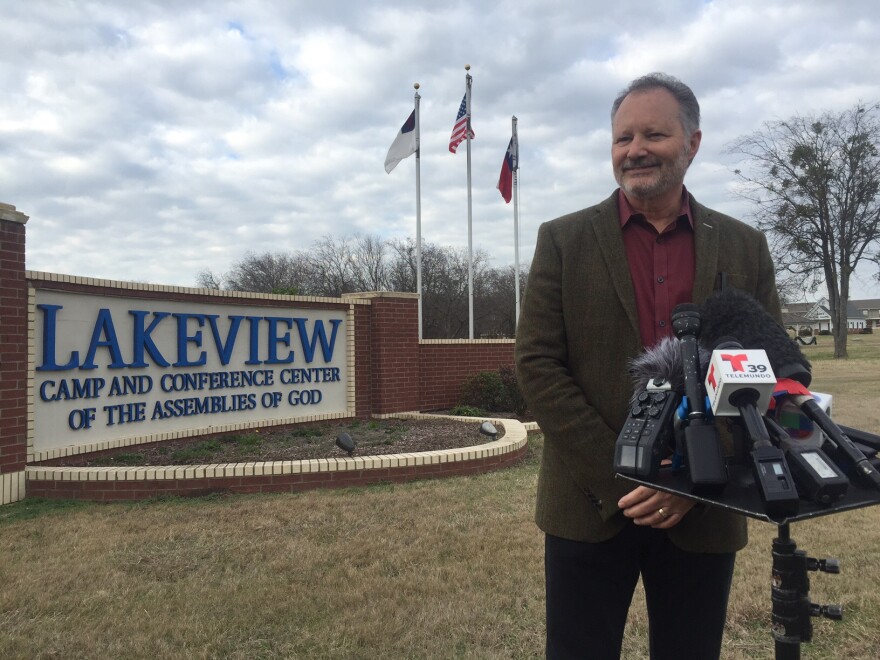Nearly 500 immigrant children are temporarily staying at a campsite in Ellis County, about 45 minutes south of Dallas. Two hundred more are expected to arrive there by the end of the week.
On Tuesday, reporters got a tour of the facility.
At Lakeview Camp and Retreat Center, teenage boys kick and chase soccer balls on a field. Like any match, there’s yelling and cheering and laughter.
It looks like most youth camps, except these kids have traveled thousands of miles to get here. They’re from Honduras, El Salvador and Guatemala – and they arrived at the Texas-Mexico border without parents.
For Rick DuBose, giving them a temporary place to stay is the right thing to do. He’s superintendent for the North Texas District Council of the Assemblies of God, which runs Lakeview.
“There’s a joy and a happiness that I see on their faces. And I know some of what they’ve been through to get here,” DuBose said. "And when you consider the struggle they’ve had and then for this little bit of a moment, they’re at peace and they feel protected and they can laugh and have a good moment – that’s made it worth it to us.”
The federal government pays Lakeview $60 per day per kid, which covers three meals, two snacks, lodging and activities.
The campsite spreads out over 330 acres, between the Ellis County towns of Maypearl and Waxahachie. Twenty-one brick and wood-framed cabins dot the grounds. Inside are wood-framed bunk beds, bathrooms and showers.
Many of the kids arrive on the border with minimal personal belongings. Before coming to Lakeview, they get a bag with clothes and a toothbrush. Girls get pregnancy tests and kids 12 and up get tested for HIV. Twelve paramedics or licensed nurses are on the Lakeview property. They’re checked for lice and scabies before being allowed in their rooms.
Despite the warm welcome these kids have received, DuBose wants to make one thing clear.
“What we’re doing here – taking care of these kids – is not a show of support for the policy of the United States of America,” DuBose said. “It’s not a show of support for the way it’s being done, for how we’re handling our relationship with other nations, for the decisions that are being made in Washington.”
What it is, he says, is compassion. Something that stems from his faith.
Border patrol agents have seen more unaccompanied children coming across the border this fall. More than 10,000 kids came in October and November – twice as many as the same period last year. That’s why Texas has opened two temporary facilities – this one and another in Rockwall County, where 300 kids are expected to arrive at the end of the week. A third temporary center will open in California.
“It’s not a difficult issue for me because the scripture clearly guides us to take care of orphans, to take care of sojourners, people that are traveling, people that are in difficulty,” DuBose said. “And that’s what we did.”
A number of Ellis County residents have said they're worried about security at the site. In response, the county sheriff added off-duty deputies to patrol the property.
“The operation from our standpoint and security has been completely flawless,” said Constable Terry Nay, who represents the area. “We haven’t had any problems. Everything is going very well.”
Many of these kids have faced dangerous journeys and experienced traumatic events, so counselors are also on site to help. Inside a large multi-purpose building, two women stood before a group of young girls.
They talked about anxiety and how to cope with stressful situations. And, they showed them how to breathe properly – skills they’ll need for the rest of their journey here.
During these 21 days, some kids will be sent to live with family members already in the country. Then, they’ll have to appear before a federal judge, who'll decide whether they should be deported or allowed to stay.





